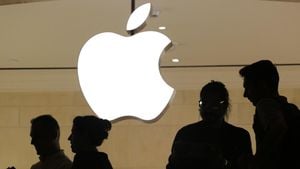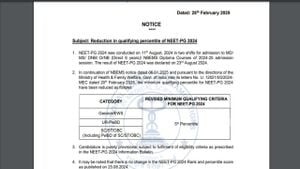The diplomatic and educational landscapes are poised for significant developments this June, as key announcements set the stage for future events. U.K. Ambassador to Israel Simon Walters recently highlighted the urgency of negotiations surrounding Iran's nuclear program, declaring June as a pivotal deadline.
Speaking at the Institute for National Security Studies’ annual conference held in Tel Aviv, Walters stated, "We have told them very clearly...the deadline is in the middle of the year, the end of June." This deadline allows for the U.K., Germany, and France—collectively termed the E3—to strategize on potential snapback sanctions against Iran if the Islamic Republic fails to comply with demands to curtail its nuclear enrichment activities. Walters insisted, "Iran is currently in total breach of the JCPOA," referencing the Joint Comprehensive Plan of Action formed to limit Iran's nuclear capabilities.
The looming summer deadline is seen as favorable, as recent communications suggest Iranian leaders are open to negotiations. “While we’re not naive,” Walters said, "we know they will want to draw [negotiations] out." There's urgency as these Western powers grapple with Iran's violations since the U.S. exited the agreement back in 2018.
Meanwhile, significant changes are also occurring within India's educational systems. Maharashtra's Education Commissioner Sachindra Pratap Singh announced schools would reopen as usual on June 15, directly countering previous plans to align the academic calendar with the CBSE schedule, which proposed starting the school year from April. This decision addresses widespread confusion among educators and parents.
Former director of education, Bhau Gawande, emphasized the challenges of adhering to the CBSE schedule, stating, "Exams end in March...when will children get books?" Numerous teachers expressed concern over seasonal heat and logistical challenges related to textbook availability. Discussions surrounding potential shifts have garnered mixed reactions, with many fearing the adjustments would overlook local weather patterns and cultural contexts.
On the other hand, some educators, like Madhura Phadke from AM Naik School, support revised calendars, asserting, "Change always meets resistance, but adaptation happens." This highlights the debate within Maharashtra on whether educational norms should evolve to match changing societal needs.
June will also usher the gaming community's excitement as Bithell Games announces their action-adventure title, Tron: Catalyst, set for launch on June 17. The game takes place within Disney's beloved Tron universe and follows the resilient program Exo, who is determined to save the Grid from destabilization. The latest trailer reveals captivating gameplay and storyline elements, building anticipation among fans.
Shifting gears to the console market, whispers of Nintendo's potential launch of the much-anticipated Switch 2 device are circulating. A former employee, known only as Sean, suggests the console could debut as soon as June. “Nintendo will be eyeing up a Summer launch for the Switch 2,” he noted during a Kit and Krista podcast episode. This forecast hints at strategic planning to release the console before the holiday season this year, ideally to build momentum for upcoming exclusive games.
With industry experts predicting various price points, Sean speculated pricing could range as high as $450, contradicting lower estimates circulating among fans. Expectations surrounding the console's new features, such as the innovative Mouse Mode for enhanced gameplay precision, contribute to the growing buzz.
June 2025 is shaping up to be pivotal across several sectors, including international diplomacy, education, gaming, and consumer technology. Each of these events serves as a harbinger of change and adaptation, fueled by necessity and public discourse. How these developments will play out remains to be seen, but for now, stakeholders are addressing the immediate challenges posed by deadlines and expectations.



